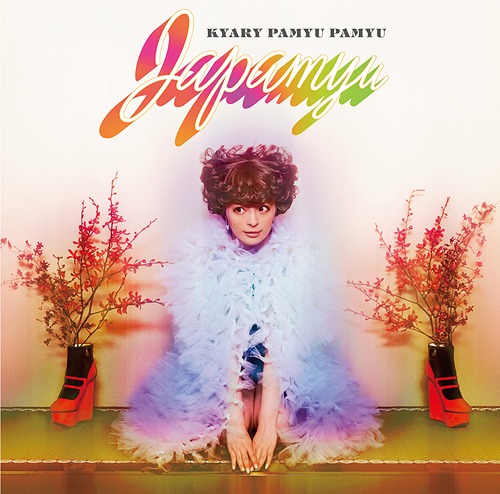#10 Suiyoubi No Campanella (Wednesday Campanella) Galapagos
I shouldn’t be surprised by anything KOM_I of Suiyoubi No Campanella does, yet back in the early days of summer I watched slack-jawed as she left the stage at a quaint venue near Mt. Fuji and wandered into a field that had been set on fire sometime during the preceding two hours. This group has upended expectations for years now and wowed me enough last year en route to them taking the top spot in the 2017 list, but they always find a way to keep things interesting — even if it involves burning swaths of grass — and add to their own sonic world.
Galapagos spent a little time finding the trio revisiting familiar formulas — see the rumbling mythology-gone-dance-pop of “Three Mystic Apes,” as close to boilerplate Suiyoubi No Campanella as one can get — but mostly captured a group poking around and finding their voice (litarlly), all in search of what direction to pivot next. But even these tests proved, by the end of 2018, to be among the year’s finest. The big development is a risky one — KOM_I, whirling dervish incarnate, drops rapping in favor of singing across all 36 minutes here. But it results in highlights such as the refined theatrics of “The Bamboo Princess” and the understated shuffle of “Minakata Kumagusu,” a song seeing how few parts can be used to assemble an emotionally affecting hook. Half-speed dreampop collaborations with French art types rubbed shoulders with mutations on classic rock stomp. Even the two ballads closing out the album, what felt like noble failures at first brush but have grown into interesting detours for a project operating as far away from soaring end-credit J-pop as possible. Part of Galapagos’ appeal lies in how its a document of a group in flux…I doubt Suiyoubi No Campanella will sound like this a year from now, and they might settle on one specific path to go. But this is them moving in eight at once, surrounded by flames and an endless pool of ideas.





